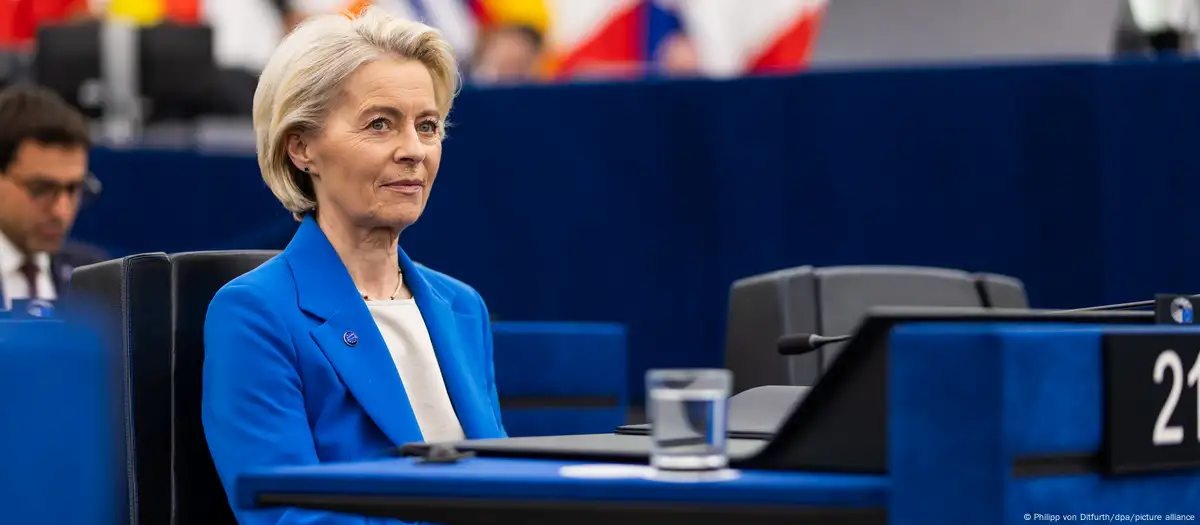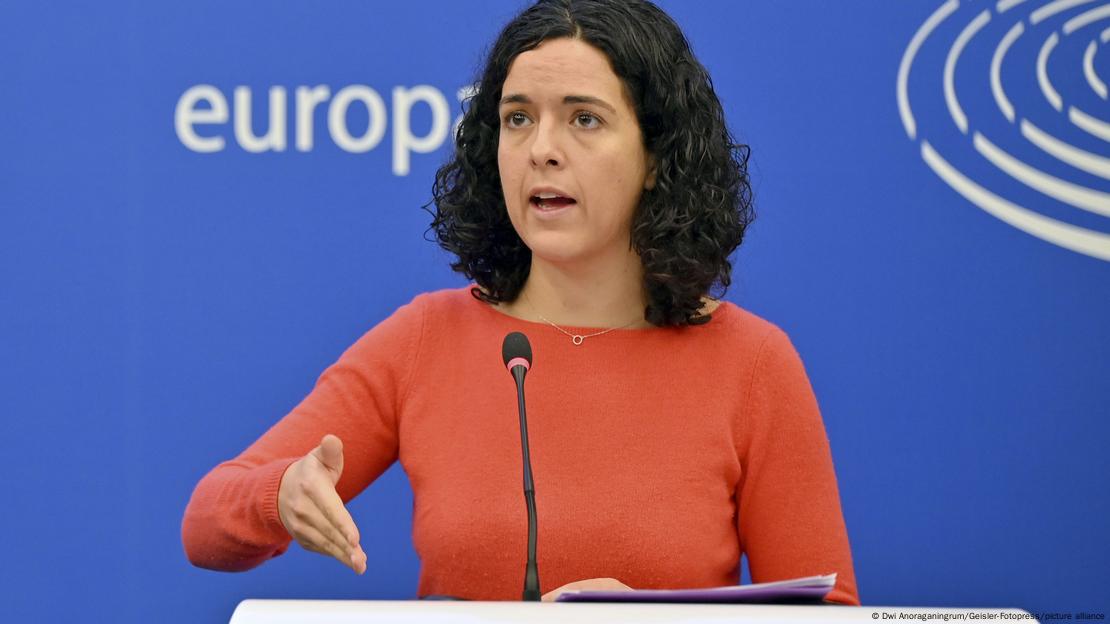
- Facing two no-confidence votes in just three months is unprecedented for a European Commission president. While von der Leyen is not expected to be ousted, the repeated challenges reflect a fragmented Parliament and a fragile trust between the Commission and centrist parties.
- Unlike the previous vote in July, this time the opposition comes from both the radical left and right, whose worldviews differ sharply, yet whose common goal appears to be undermining the Commission president and consolidating their own influence.
- Olivier Costa, a research director at France’s CNRS, noted that extremist forces on both sides, coupled with von der Leyen’s leadership style, are destabilizing the traditional balance of power within the EU.
On Monday afternoon, the European Parliament reconvened in Strasbourg for the second session following the summer break, immediately turning its attention to the leadership of European Commission President Ursula von der Leyen.
The debate began with sharp criticisms from Jordan Bardella, French chairman of the far-right Patriots for Europe, who accused von der Leyen of lacking transparency, failing on migration policy, and undermining Europe’s competitiveness through her climate initiatives. He also denounced the customs deal with the United States as a “disaster,” claiming it represented Europe’s surrender.
The criticism continued with Manon Aubry, deputy chair of the left-wing group, who condemned von der Leyen for mishandling relations with Israel and the war in Gaza, failing to advance the Green Deal, and prioritizing arms purchases over social welfare programs.

Aubry went as far as to tell von der Leyen, “You must go.” Despite the barrage of attacks from both ends of the political spectrum, von der Leyen responded calmly, arguing that her opponents were exploiting divisions within the Parliament and calling instead for unity.
Facing two no-confidence votes in just three months is unprecedented for a European Commission president. While von der Leyen is not expected to be ousted, the repeated challenges reflect a fragmented Parliament and a fragile trust between the Commission and centrist parties, dw.com reports.
Unlike the previous vote in July, this time the opposition comes from both the radical left and right, whose worldviews differ sharply, yet whose common goal appears to be undermining the Commission president and consolidating their own influence.

Analysts point to rising political extremism as a central factor behind the growing unrest. Almut Möller, director of European and Global Affairs at the European Policy Centre, said that such developments were unsurprising given the increasing fragmentation in the Parliament.
Olivier Costa, a research director at France’s CNRS, noted that extremist forces on both sides, coupled with von der Leyen’s leadership style, are destabilizing the traditional balance of power within the EU.
Critics have specifically targeted von der Leyen’s centralized and hierarchical decision-making approach. Costa observed that she “really sees herself as a prime minister,” sidelining consensus-driven processes and reducing the collaborative spirit that previously characterized the Parliament and Commission. This top-down style has caused discontent both among legislators and within the Commission itself.
The political landscape in Europe has become more complex since 2019. The former “grand coalition” between the conservative European People’s Party (EPP) and the Social Democrats (S&D) is no longer sufficient to secure stable majorities.
Personal clashes between leaders such as Manfred Weber of the EPP and Iratxe García of the S&D have further hampered compromise, creating a power vacuum at the center that political fringes are eager to exploit.
Criticism of the Commission president now comes from multiple sides. Liberals are frustrated with slow bureaucratic reforms, the EPP resents unilateral foreign policy decisions, and Social Democrats and Greens express concern over the EU’s shift toward economic growth at the expense of social programs and environmental commitments. Despite the broad range of grievances, analysts caution that these criticisms do not fundamentally threaten von der Leyen’s position.
Möller suggests that the upcoming no-confidence votes could be used strategically by von der Leyen to reinforce loyalty within her coalition. By framing the votes as a question of unity and commitment, the Commission president has an opportunity to discipline her allies and maintain engagement from centrist factions.
The no-confidence votes also raise broader questions about the health of EU democracy. Costa sees them as both a sign of vibrant democratic debate and a potential source of destabilization.
He describes the situation as the “new normal,” characterized by continual stress tests and intense political scrutiny. While von der Leyen is unlikely to resign or be dismissed, the size and cohesion of the opposition bloc is politically significant.
Ultimately, observers suggest that the focus will not be solely on whether von der Leyen survives the vote, but on how she navigates the challenge.
The extent of opposition will affect her leverage in upcoming budget, trade, and climate legislation, making the task of balancing competing pressures an ongoing test of leadership. For the European Commission president, maintaining stability and coalition cohesion in an increasingly fragmented Parliament appears set to remain a delicate balancing act.
Follow The Times Kuwait on
X, Instagram and Facebook for the latest news updates












